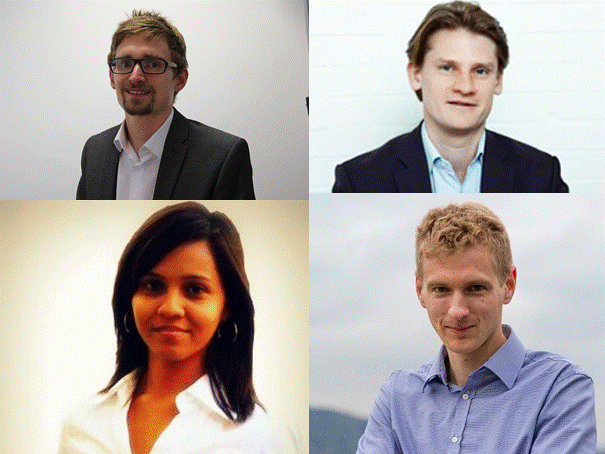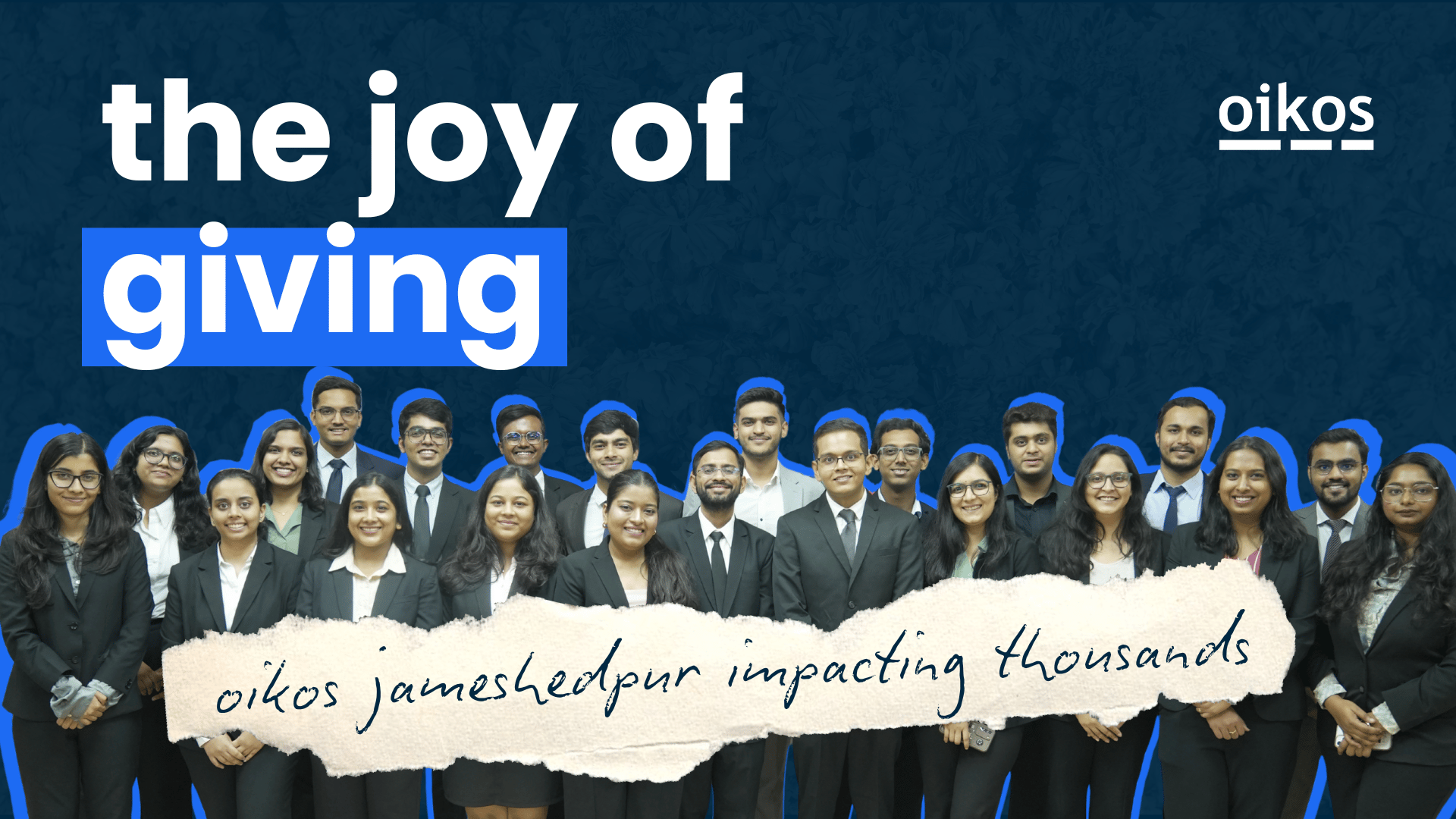
The second oikos alumni debate online took place on February 22nd and as with the first, it was a true oikos product: made by alumni for alumni. The evening was guided by the title: “Renewing Global Energy: Revolution or Evolution?”. Three panelists shared their insights with interested alumni and replied openly to their questions: Nils Bennemann, Ralph Ripken and Aanal Patwari. The debate was moderated by Benedikt Lemke.
Solar, wind, thermal, biomass: Renewable energy (RE) has spread widely. Whether humongous wind farms are built off the European coasts or solar panels powering single households are installed on Kenya’s rooftops: many factors have pushed and pulled renewable technologies into the spotlight.
But how far have we come? And what factors determine whether the world will transition to RE quickly enough to halt rising temperatures? Three experts, all oikos alumni, took to the virtual panel on February 22nd to discuss with12 moderator and wind engineer Benedikt Lemke, if the future would bring an RE “revolution” or rather a slow-paced “evolution”. From Dubai’s Electricity and Water Authority (DEWA), oikos Ahmedabad alumna Aanal Patwari called in, while oikos St. Gallen’s Ralph Ripken (E4Tech) and oikos London’s Nils Bennemann (Greencoat Capital) joined from London.
Hard to implement RE? Not if you do it right!
The panelists moved right into the core of the night’s topic: With the technology to run the world on renewables mostly in place, what makes it so hard to implement it? Surprisingly, and somewhat comforting, the three experts did not share the negative sentiment of the question. While it was true, they confirmed, that the technology behind RE had become affordable and facilities often very profitable to run, implementation does not have to prove hard. Aanal stressed that she sensed a lack of awareness for the need to switch to renewables, especially in developing countries and the UAE, where she is based. Without demand from an informed public and the readiness to pay a premium however, the transition is almost impossible; prices for RE would need to drop below the price for energy from fossils. In many places, this is not far from reality (hyperlink to article). Ralph quickly identified the current energy infrastructure as an impediment to implementation. Especially the grids, the power lines bridging electricity from production sites to the consumer, were not made to deal with the varying influx from solar and wind, which only produce electricity when it’s sunny or windy.
The potential of energy efficiency should not be underestimated
Developing interstate grid-sharing – making it possible to decrease the pressure on the grid, when supply from renewable energy sources is high, and adding electricity from outside, when demand exceeds the production from renewables – is an important step to change this. Many European countries have already established such a mechanism, but so far countries charge when a partner is in desperate need of energy, but remunerates nothing, in case excess energy has to be pumped into a neighboring grid.
Even though the immense infrastructure needs will make the transition to RE an evolutionary process, there is revolutionary potential, knows Nils. Firstly, the decreasing prices for panels over the past years show that, with the right incentives, markets will adopt cleaner technology. Secondly, the efficiency gains from technological advancements in all areas, from burning fossil fuels to harnessing wind, were impressive. But because they have been absorbed quickly, they remain invisible: “They are in themselves revolutionary, but only bring about change on an incremental basis.” Ralph added that, in developed countries, the infrastructure of the three big energy consumers transport, heat, and power, is so advanced that only incremental changes are possible. “The only way to accelerate the renewal is through disruptors, as Tesla has been for the transport sector.”
Policy is a catalyst that can accelerate and stifle the transition
Tesla not only built pressure on the leading car manufacturers to put their technology on par, but electric driving has ultimately become associated with a good lifestyle. But are disruptors like Tesla really changing markets or is it reactive policy that brings the change to scale? From the experience of all three panelists, policy is merely a catalyst – one that can accelerate or stifle the reaction, as Nils’ example shows:
When in summer 2015, the UK announced various cuts to wind energy subsidies, it left investors and consumers perplexed and may have limited their interest to invest in the next generation of RE. On the other hand, disruptions alone cannot suffice. Germany’s market leader in large-scale end-consumer batteries, sonnen, was serving a niche. With an alteration to Germany’s subsidy system – decreasing the remuneration for feeding home produced solar energy into the grid – it made sense to store the energy locally instead of selling it, giving sonnen an upswing.
All three panelists are professionally engaged, in promoting, financing, and managing renewable energy sources. But Benedikt wanted to know, what are their private efforts? What can they (and ultimately all of us) do to ensure a quicker transition to RE?
Increasing energy efficiency and improving the carbon footprint of housing would be a great place to start. To their own disappointment, neither owns a house on which to install solar panels or under which to create a thermal heating. In Aanal’s case, her being an expat living temporarily in Dubai makes it even more difficult. As the landlords in the Emirates put little trust in their foreign tenants, almost never do they decide to refurbish the energy environment of their apartments. Nils has found another great way to put his money where his mouth is and invests in the funds of his employer, which apart from production facilities, also invest into technology to use resources and energy more efficiently. But it’s not only about feeling good about one’s self, he thinks, “for our generation, there is a lot of business opportunity in it.”
Making the connection to the oikos mission, Benedikt finally asked about the right way to teach our students about the energy transition. Aanal hopes that the world makes use of the high potential the younger generation has: “They are smarter than us in a lot of cases. They come up with the new technologies.”, she said. The DEWA fosters the drive for innovation by running an accelerator program and an innovation hub.
With a lot of openness, the panelists tried to answer as many questions from the audience as possible, before everyone logged off. This again was a great way to reconnect among alumni. The event brought together those interested in the topic to discuss global trends and the particularities of their regions. Some alumni met again after 7 years, others decided to get in touch to finally meet up again. This reflects well the spirit of this program: creating a network for oikos alumni interested/working in the same field. We thank the moderator and the three panelists for their commitment.




